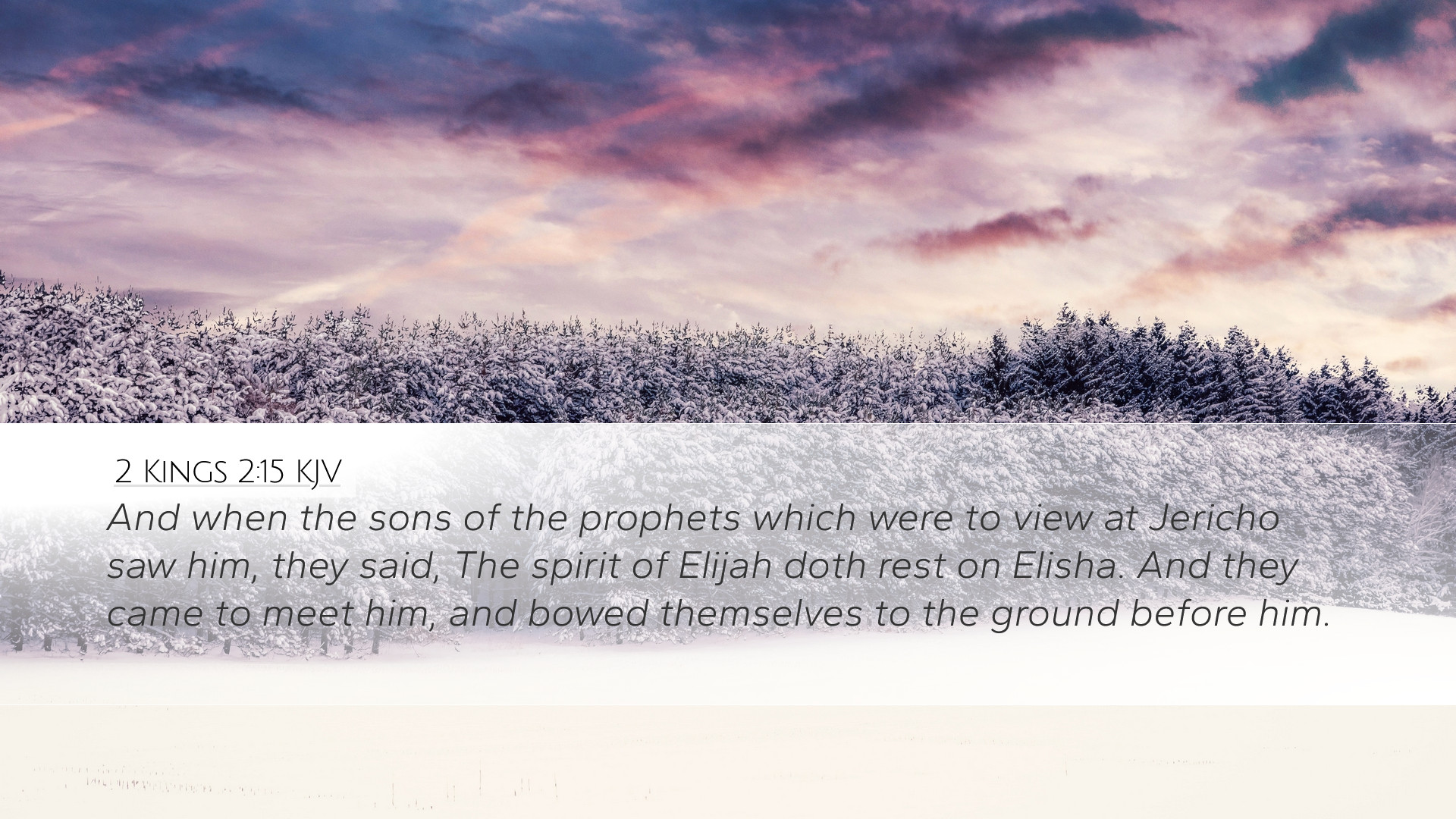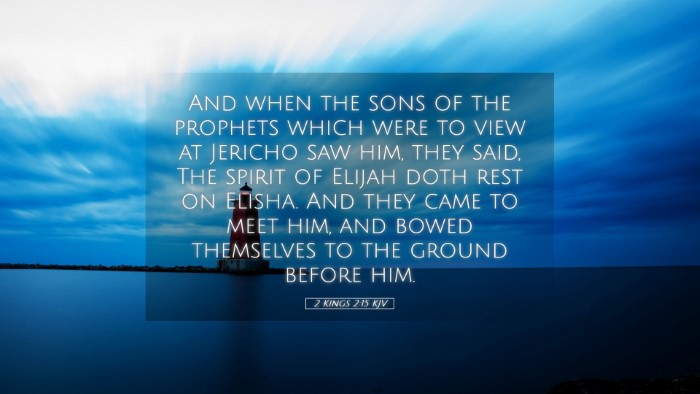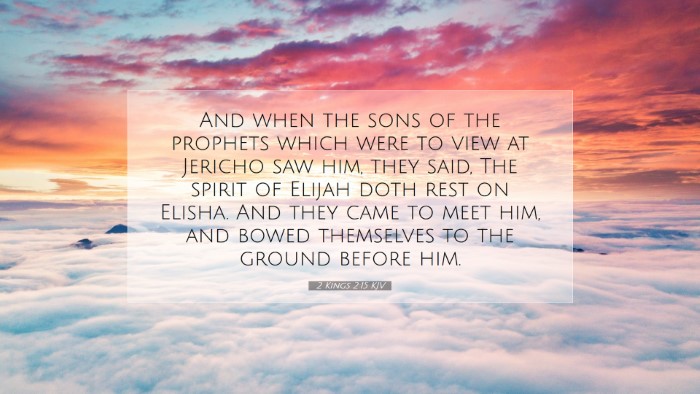Commentary on 2 Kings 2:15
Bible Verse: 2 Kings 2:15 - "And when the sons of the prophets who were at Jericho saw him, they said, The spirit of Elijah doth rest on Elisha. And they came to meet him, and bowed themselves to the ground before him."
Introduction
This passage marks a significant transition in the prophetic ministry from Elijah to Elisha. The moment captures the recognition of divine authority and the continuity of God's work through His chosen instruments. Various public domain commentaries delve into this transition, extracting profound insights that illuminate its significance.
Understanding the Context
The context of this verse is critical. Following the dramatic ascension of Elijah, Elisha, his disciple, emerges as the new prophet. The sons of the prophets represent a community of followers who acknowledge the spiritual authority present in Elisha. Their recognition illustrates not only the continuity of prophetic ministry but also the pivotal role of community in the acknowledgment of God’s chosen servants.
Matthew Henry's Insights
Matthew Henry emphasizes the importance of divine acknowledgment among the prophets. He observes that the sons of the prophets, who had been trained under Elijah, displayed a keen spiritual insight to recognize that the spirit of Elijah rested upon Elisha. This recognition serves multiple purposes:
- Affirmation of God's Choice: It underscores that God had indeed chosen Elisha as the successor to Elijah, confirming His will through the community.
- Unity and Respect: The act of bowing reflects reverence and the need for unity in upholding prophetic authority, showcasing the collaborative essence of God's work.
Albert Barnes' Reflections
Albert Barnes elaborates on the implications of this recognition. He discusses how the ministry of Elijah was characterized by power and miracles, which left a lasting impact. Elisha, inheriting this mantle, bears the responsibility to continue the mission:
- Continuation of Ministry: Barnes notes the historical significance in the passing of prophetic authority from Elijah to Elisha highlights the uninterrupted flow of God's influence through different vessels.
- Recognition of Leadership: The sons of the prophets' reaction to Elisha serves as an ecclesiastical model for recognizing ordained leaders within the community of faith.
Adam Clarke's Commentary
Adam Clarke provides a detailed analysis of the phrase "the spirit of Elijah doth rest on Elisha." He interprets this as a profound transfer of spiritual charisma and authority, underscoring several key points:
- Spiritual Endowment: Clarke highlights how this phrase indicates that Elisha was not merely a successor in title but was endowed with a similar spirit, a divine enablement to accomplish God’s work.
- Miraculous Ministry: He points out that this endowment is critical for Elisha's upcoming ministry, filled with miracles that will affirm his prophetic legitimacy and draw people back to worship Yahweh.
Theological Insights
The recognition of Elisha by the sons of the prophets brings forth several theological themes that are vital for scholars and students of theology:
- Divine Sovereignty: God's sovereignty is highlighted as He chooses leaders according to His divine purpose—a reality that invites reflection on modern leadership within the church.
- Community Acknowledgment: The community’s role in recognizing leadership emphasizes the importance of discernment in spiritual matters—encouraging a participatory faith journey.
- Propagation of Spiritual Gifts: This passage serves as a reminder that spiritual gifts and callings are intended to be passed on, creating a legacy of faithfulness across generations.
Practical Applications
For pastors and theologians, this passage has meaningful implications for ministry and church leadership:
- Recognizing God’s Appointed Leaders: Believers are encouraged to observe and discern who God has placed in leadership, much like the sons of the prophets recognized Elisha.
- Involvement in Community: It illustrates the necessity for communal recognition of God’s work among His people, fostering a sense of unity and mutual respect.
- Embracing Continuity: Just as the spirit passed from Elijah to Elisha, modern churches are called to embrace the continuity of faith, training up future leaders to shepherd God’s people.
Conclusion
2 Kings 2:15 serves as a profound reminder of the dynamics of prophetic succession, the power of divine revelation, and the essential role of community in the life of faith. The insights drawn from the commentaries of Matthew Henry, Albert Barnes, and Adam Clarke create a rich tapestry that speaks to the heart of pastoral ministry and theological education. As believers, recognizing and honoring each other's gifts and callings is essential for the fulfillment of God's mission in the world.


